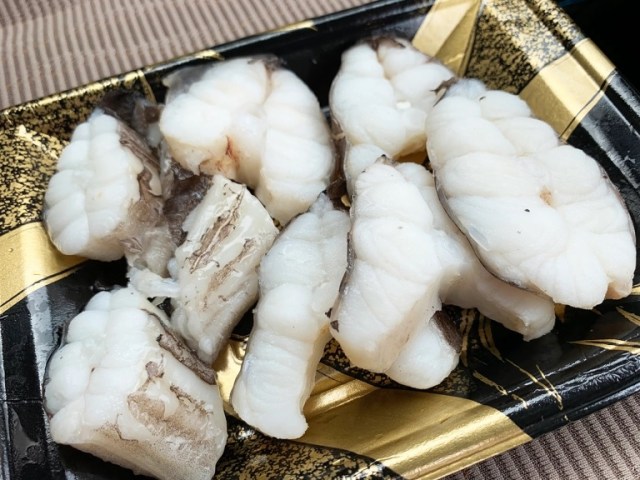
It’s some kind of fish…probably…
When last we left our travelling Japanese-language reporter Seiji Nakazawa, he’d finally figured out a way to get to his lodge on Yakushima, the beautifully forested island in southwestern Japan that’s said to be the inspiration for the setting of Studio Ghibli anime Princess Mononoke. Seiji likes to plan out as little as possible when travelling, so that he can experience the excitement of surprises and discoveries along the way, and this no-plan plan was also in effect once his stomach started rumbling.

Being a remote island, Yakushima doesn’t have the density of convenience stores, supermarkets, and fast food restaurants that Seiji is accustomed to in Tokyo. From his lodge, though, he did have access to a market called A-Coop.
When travelling in Japan, market sashimi corners are a pretty good option. The slices of fish are meant to be eaten raw, and sashimi packs usually include a packet of soy sauce and wasabi, meaning that you can eat the whole thing without the need for any cooking or tableware. Just ask for a set of chopsticks, which most Japanese markets are happy to provide upon request, and you’re all set.
So once he was inside A-Coop, Seiji naturally headed for the sashimi section, and that’s where he saw this pack of modama.
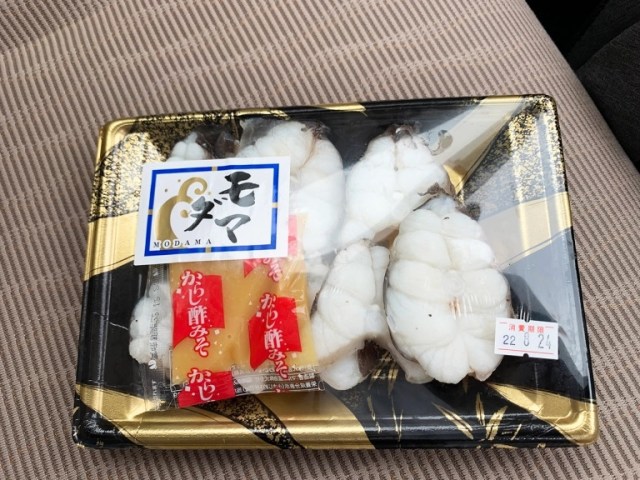
At 398 yen (US$2.95) the pack was slightly on the inexpensive side for store-bought sashimi, and once Seiji saw the six plump slices of fish inside, it looked like an even better deal. Really, there was only one problem.
Seiji had no idea what “modama” was.
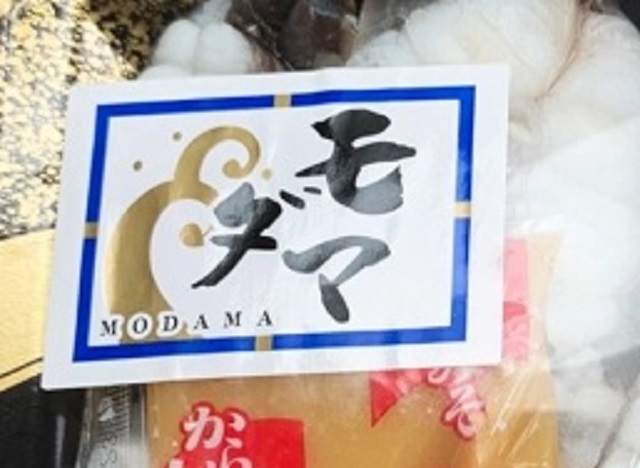
Like with most people born and raised in Japan, seafood has been a big part of Seiji’s diet for his entire life. He’s eaten all sorts of different fish, but he couldn’t remember ever even hearing the word “modama,” let alone eating it. In keeping with his philosophy that travel is all about new, unexpected experiences, though, he decided to give the modama a try and purchased the pack.

With the wrapper off he was able to get a closer look, and…nope, he still couldn’t tell what is was. Visually, it sort of reminded him of conger eel, but the bone in the middle of some of the pieces was mysteriously thick.
Also unusual was the seasoning. Instead of wasabi and soy sauce, the modama came with a miso/vinegar/karashi (Japanese spicy mustard) blend.
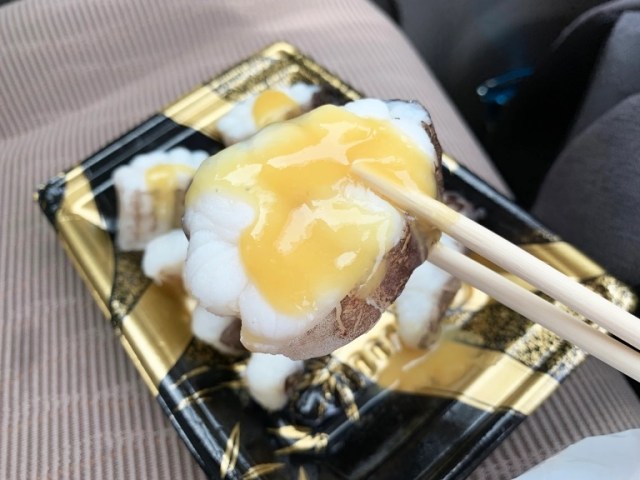
But while the modama’s identity was still unknown, Seiji at least knew that it was some kind of edible sea creature, so he picked up a piece with his chopsticks and popped it into his mouth…which only deepened the mystery. The texture was firm and meaty, more like a land animal than a fish. There was still a distinct fish element to the flavor, though, so he couldn’t call it gamey. Maybe something like “marine gamey” would be a better description?
Also intriguing was the bone. Though it was thick, Seiji found he could eat it with some light crunching, which gave it a pleasing cartilage kind of snap, especially combined with the fleshy feel of the thick cuts of fish.
All in all, it was really good. He just didn’t know what he was eating.
Seiji polished off all six pieces, and with his hunger satisfied, it was time to satisfy his curiosity. So Seiji went back into the market, spotted an unoccupied employee, and asked “Umm, so, what is modama?”
To which the employee replied:
“Parboiled shark.”
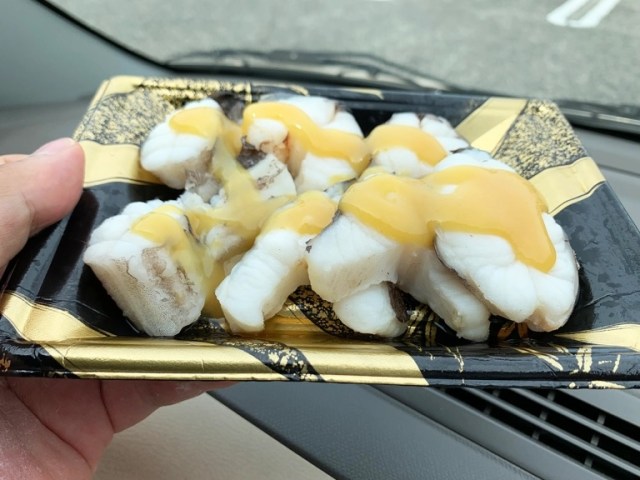
Shark sashimi isn’t something you’ll find very often in Japan. It’s rare enough, in fact, that Seiji hadn’t even considered the possibility that he could have been eating shark. But now that he’s tried it, he really wants to eat it again. Maybe not every day, but with about a week left on his Yakushima trip, he figures he’d like at least another two servings of modama. It tasted great, was a good value, and, perhaps most importantly, looks a lot more appetizing than the shark heart he ate that one time.
Photos ©SoraNews24
● Want to hear about SoraNews24’s latest articles as soon as they’re published? Follow us on Facebook and Twitter!

No hay comentarios:
Publicar un comentario